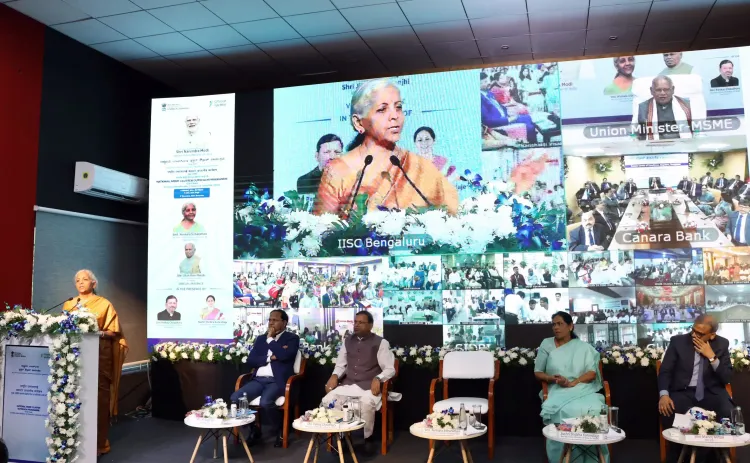Can Time-bound Single Window Clearances Transform MSMEs in States?

Synopsis
Key Takeaways
- Digitised and time-bound clearances can enhance the investment climate for MSMEs.
- Streamlining approvals can significantly boost efficiency and transparency.
- Reforms are needed to simplify compliance processes for MSMEs.
- Collaboration between government and industry is essential for success.
- States play a vital role in empowering MSMEs to drive economic growth.
New Delhi, Nov 12 (NationPress) Digitised and time-bound single window clearances could revolutionize the investment landscape for micro, small, and medium enterprises (MSMEs) throughout various states, according to a report released by Assocham on Wednesday.
By optimizing approval processes and minimizing bureaucratic hold-ups, such systems can significantly boost efficiency and transparency, the report indicated. It emphasized the need to simplify land-use and zoning protocols, rationalize approval fees, and enhance last-mile infrastructure, particularly in access to electricity, roads, and water, to elevate overall business competitiveness.
The report urges for expedited reforms aimed at streamlining business regulations, refining approval mechanisms, and fostering the growth of India's MSMEs.
At the national level, the report suggests creating a unified, consolidated annual MSME compliance form that merges multiple filings. It also recommends implementing biennial or triennial filing cycles for registered MSMEs to alleviate compliance burdens under the Companies Act.
“Despite significant policy reforms and process simplifications, such as those for GST, businesses still navigate through numerous layers of compliance and approvals,” stated Nirmal Minda, President of Assocham.
Assocham is actively collaborating with both central and state governments to pinpoint and enact necessary regulatory and financial reforms.
“By working together, we can cultivate a transparent, efficient, and investment-friendly ecosystem that benefits both small and large enterprises, propelling India's growth narrative forward,” Minda remarked.
Emphasizing the unequal burden of regulatory compliance on smaller enterprises, the report highlights that MSMEs continue to encounter substantial penalties, redundant documentation, and multiple filings, which discourage formalization and growth.
Therefore, it advocates for simplified return filings, tiered penalty structures, exemptions from mandatory audits, and the integration of multiple statutory filings into a single digital platform to minimize compliance costs.
Manish Singhal, Secretary General of Assocham, emphasized that India’s growth aspirations hinge on making business operations easier, faster, and more predictable for MSMEs.
“States play a crucial role in this transformation. By prioritizing MSME empowerment, we can unleash unparalleled entrepreneurial energy across the nation,” he added.










